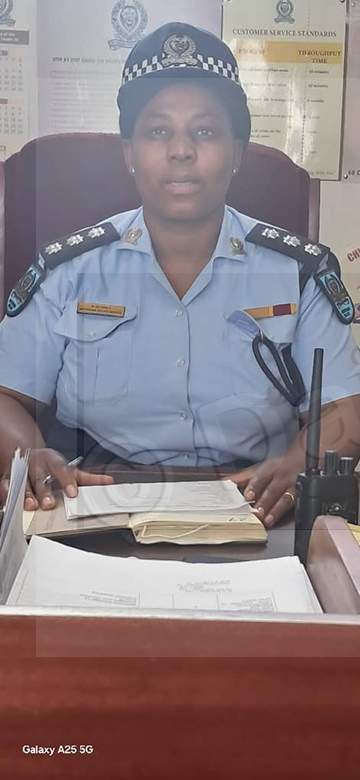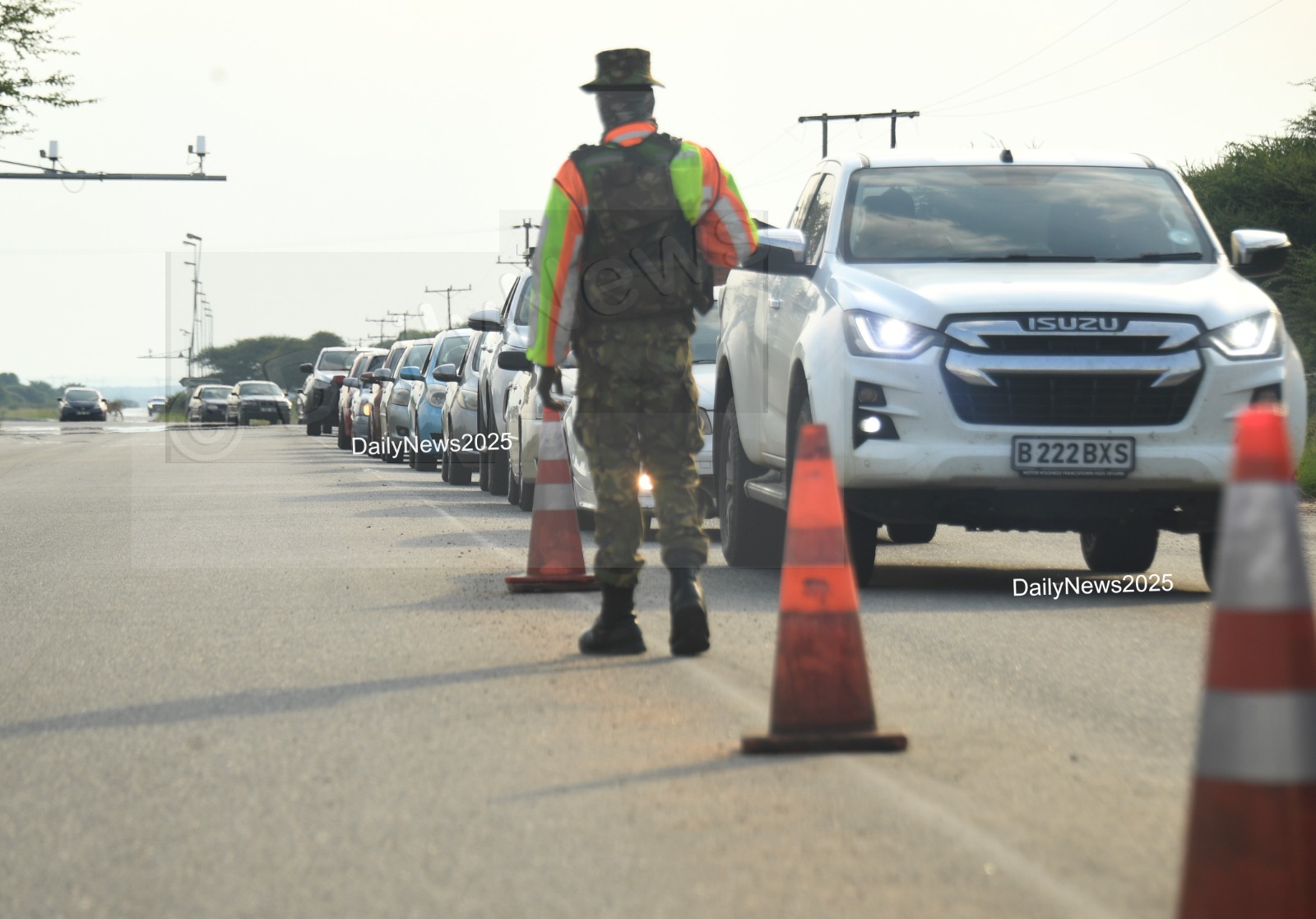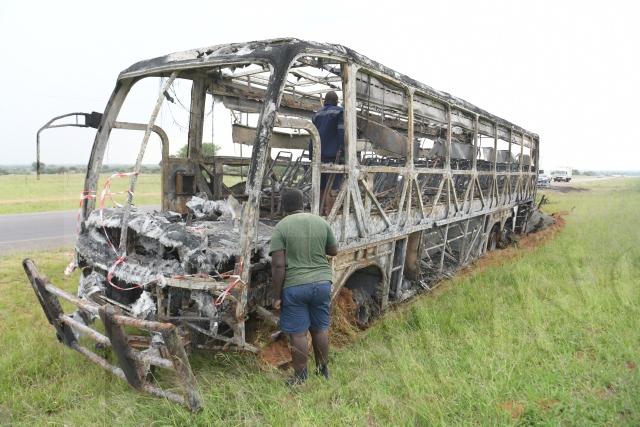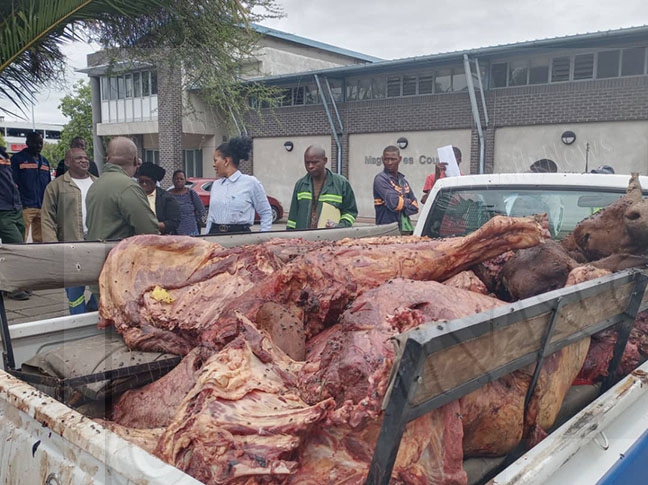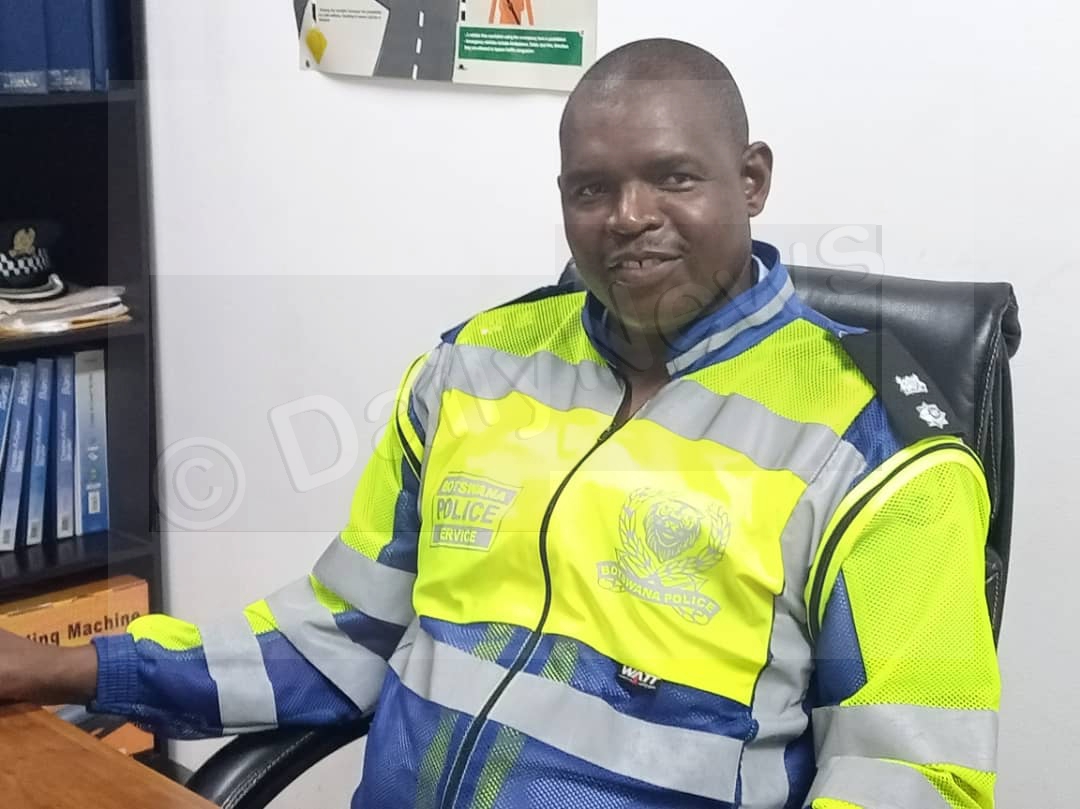Legwale Mkhuha have case to answer
31 Oct 2022
Murder accused, Ernest Legwale and Hamadi Mkhuha have a case to answer and therefore should prepare their defence.
That follows a ruling by High Court Judge Michael Leburu on October 28 after the state had, through evidence before court, established an offence of murder.
The defence case has now been set for November 19-20.
Legwale, Mkhuha and another not before court are charged with the murder of Thato Meswele of Oodi on September 10, 2015.
Legwale is alleged to have hired hitmen to murder his wife, Dimpho but accidentally murdered her younger sister, Thato.
Defence attorneys, Mr David Ndlovu and Mr Letlhogonolo Makgane had earlier made an application for the court to quash the murder charge and acquit their clients as the state at the close of its case failed to prove beyond reasonable doubt that there was a case to answer.
Bidding for client’s freedom, Mr Ndlovu said the defence was presented with a test on whether the prosecution had deduced prima facie evidence to enable conviction.
In making its determination, he said the court must consider elements of the offence and establish whether evidence produced by the prosecution showed that the victim’s death was caused by Legwale.
He argued that none of the prosecution witnesses was able to link Legwale to the attack of the deceased, adding that the assailant was never identified.
Also, he argued that the investigating team’s conclusions leading to the arrest of Legwale and linking him to the crime was based on suspicions and therefore a reasonable court would not rely on hearsay to make a determination.
“We, therefore, stand by our plea of not guilty and urge the court to acquit my client,” said Mr Ndlovu.
However, Judge Leburu said since the state had closed its case after calling all its witnesses, the accused were to present their defence.
“You have the right to remain silent if you choose to do so since onus are on the state to prove their case beyond reasonable doubt.
You can also elect to give sworn evidence and call witnesses to argue your case and be subjected to cross examination by the court.
You also have an option of giving unsworn evidence, which will not be cross examined and it is done not under oath,” Judge Leburu said.
Meanwhile, Mr Makgane, attorney for the second accused person, Mkhuha, also concurred that the state had failed to establish that his client had a case to answer, therefore, should be acquitted.
Mr Makgane added that there was nothing linking his client to murder or even lesser offence so the court cannot convict based on speculation.
He argued that ‘one of the state witnesses identified the assailant’.
The state on the other hand through the prosecutor, Ms Merapelo Mokgosi indicated that the question was whether there was enough evidence for a reasonable court acting carefully to arrive at a decision to convict the accused persons.
“We submit that the state has deduced sufficient evidence warranting the court to put the two accused persons to their defence.
A prima facie case has been established.
There are a number of questions to be answered by the accused persons for the court to arrive at a just decision,” said Ms Mokgosi.
She said Legwale was desperate to kill his former wife and her mother to a point that he consulted a traditional doctor to assist him.
She said even after Thato was mistakenly murdered in the process, Legwale went to the same doctor requesting to be cleansed to avoid arrest.
“These were the actions of a man with a guilty conscience and with a criminal mind,” she said.
Ms Mokgosi also added that the murder incident occurred at a time when Legwale and Dimpho were processing their divorce and there was evidence before court that Legwale had told her former wife’s divorce lawyer that he would solve the divorce case in his own way.
“The accused persons acted together with a common purpose to kill Thato Meswele, even though the initial plan was to kill Dimpho and her mother,” said Ms Mokgosi.
She said section 22 of the Penal Code on the doctrine of common purpose indicated that the actions of the assailant equated to that of their accomplice.
“The principal and accomplice offender jointly acted in committing the offence,” she added. ENDS
Source : BOPA
Author : Moshe Galeragwe
Location : GABORONE
Event : Court
Date : 31 Oct 2022


